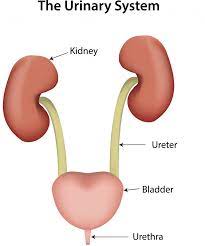Advancements in urology have been steadily transforming the landscape of healthcare, offering new hope and enhanced outcomes for patients worldwide. From innovative technologies to groundbreaking research, several developments stand out as particularly promising and exciting.
1. Minimally Invasive Surgery: One of the most significant advancements in urology is the widespread adoption of minimally invasive surgical techniques. Procedures such as laparoscopy and robotic-assisted surgery have revolutionized the field by allowing surgeons to perform complex operations with smaller incisions. This results in reduced pain, shorter recovery times, and lower risk of complications for patients undergoing procedures like prostatectomy or nephrectomy.
2. Precision Medicine: Advances in genetic testing and molecular diagnostics are paving the way for personalized treatment plans in urology. By analyzing a patient’s genetic profile, doctors can tailor therapies to target specific mutations or biomarkers associated with conditions like prostate cancer or kidney disease. This approach not only improves treatment efficacy but also minimizes side effects by focusing interventions where they are most needed.
3. Immunotherapy and Targeted Therapies: In recent years, immunotherapy has emerged as a game-changer in treating certain types of urological cancers. Drugs that harness the body’s immune system to target and destroy cancer cells are offering new hope for patients with advanced bladder cancer or renal cell carcinoma. Additionally, targeted therapies that inhibit specific molecular pathways involved in cancer growth are showing promising results in clinical trials, potentially offering more effective and less toxic alternatives to traditional chemotherapy.
4. Advances in Prostate Cancer Management: Prostate cancer remains a significant health challenge globally, but recent advancements are improving both diagnosis and treatment outcomes. Multiparametric MRI is enhancing the accuracy of prostate cancer detection, enabling more precise biopsies and reducing unnecessary procedures. Additionally, focal therapy techniques, such as high-intensity focused ultrasound (HIFU) or cryotherapy, are allowing targeted treatment of prostate tumors while preserving healthy tissue and minimizing side effects like erectile dysfunction and urinary incontinence.
5. Telemedicine and Digital Health Solutions: The integration of telemedicine and digital health technologies is transforming how urological care is delivered. Virtual consultations allow patients to access specialist care remotely, improving access in rural or underserved areas. Digital health platforms are also facilitating remote monitoring of chronic urological conditions, such as urinary tract infections or benign prostatic hyperplasia, enabling early intervention and better disease management.
6. Bioengineering and Regenerative Medicine: Innovations in bioengineering and regenerative medicine hold promise for repairing and replacing damaged urological tissues and organs. Researchers are exploring the use of 3D printing to create customized implants for reconstructive urological surgeries. Stem cell therapies and tissue engineering techniques are being investigated for their potential to regenerate urinary tract structures damaged by trauma or disease.
In conclusion, the advancements in urology are diverse and far-reaching, encompassing improvements in surgical techniques, personalized medicine, cancer therapies, digital health solutions, and regenerative medicine. These innovations not only enhance treatment outcomes but also contribute to a higher quality of life for patients facing urological conditions. As research continues to push boundaries, the future holds even more exciting possibilities for the field of urology.





Comments